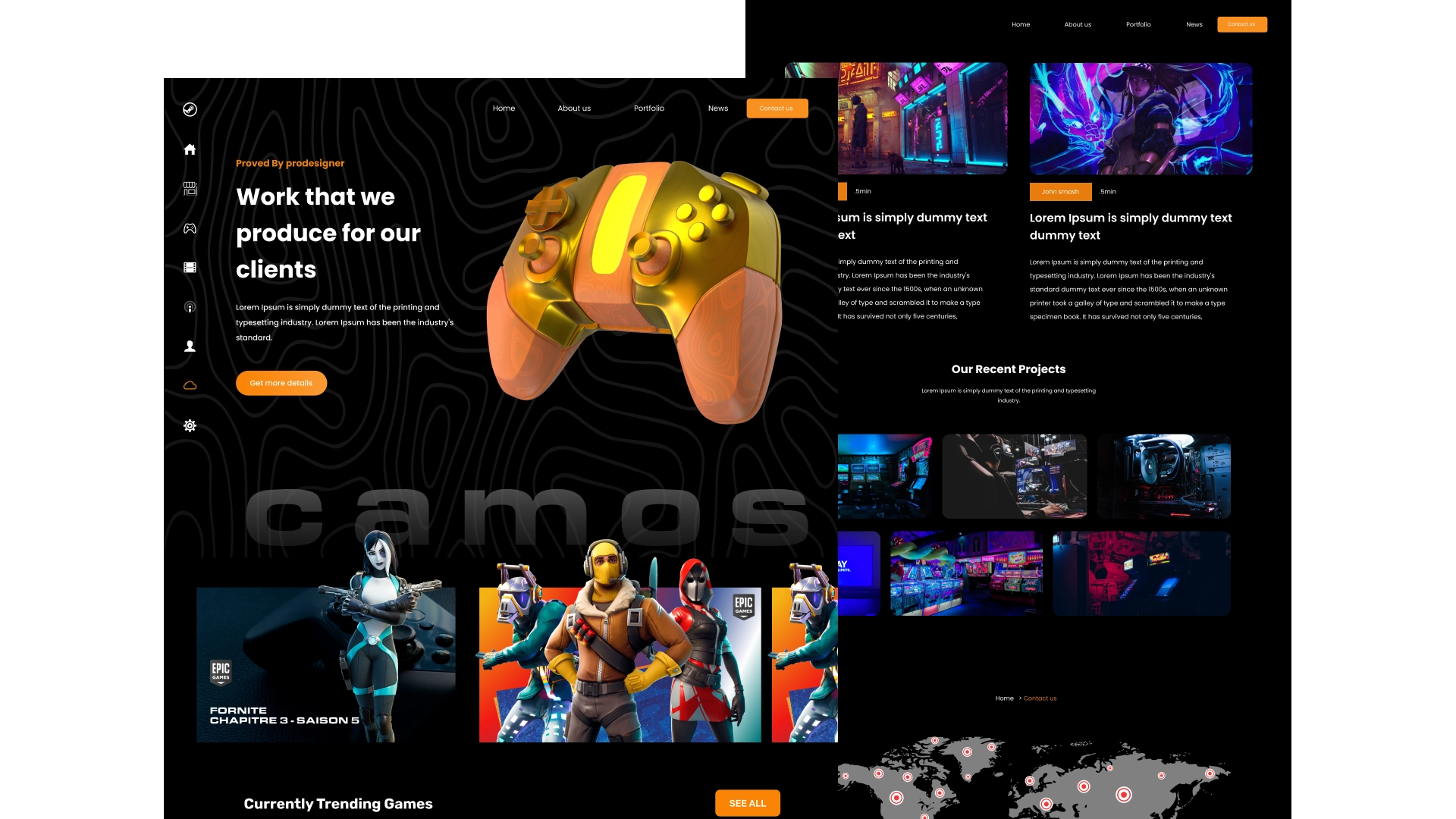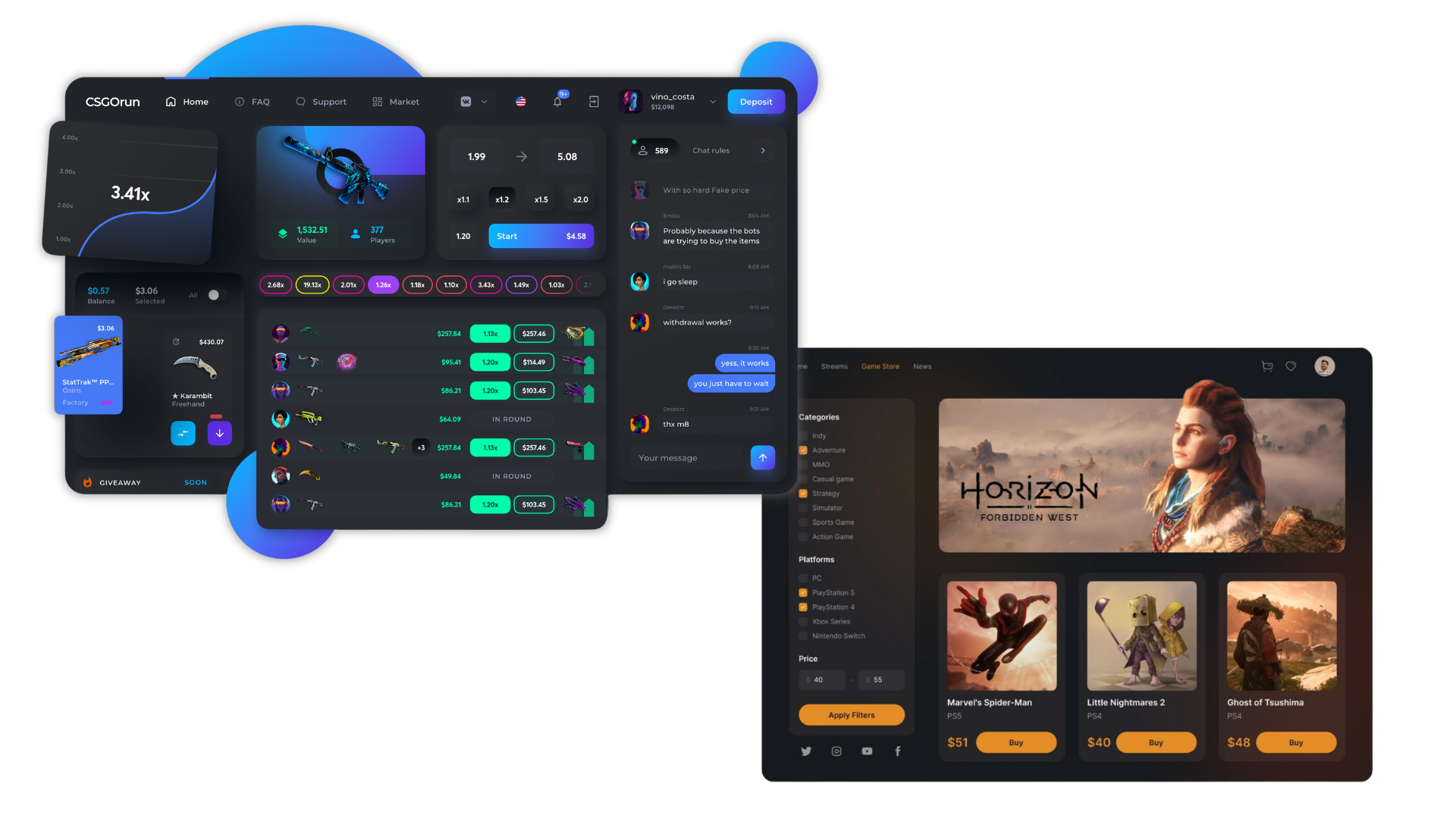The demand for multiplayer games is growing rapidly, these include shooters, MOBAs, RPGs and other popular genres. Such projects are characterized by the interaction of gamers in real time, which means they need powerful servers that can provide the game with the necessary computing resources. In this article, we will talk about the types of game servers and the main stages of their development necessary to ensure a stable gaming experience.
To ensure the stable operation of a multiplayer game, the server must solve a number of basic tasks:

There are two most common approaches to deploying multiplayer game servers. Let’s consider how they differ, and which format will be preferable for new projects.
The first type is local game servers
Local servers hosted by players on their own devices is a fairly common approach to implementing multiplayer games. For example, it is he who is used in the popular Minecraft project. Its essence is that a person can organize a game session on his own computer, to which other users can join over the network. That is, the server in this case is the device of the gamer himself.
Technically, it looks like the developer is allowing the game to run a physical server on another device, and broadcast information to the players about available co-op play. This provides some benefits:
The second type is cloud game servers
This type of servers is the most in demand and is used in projects that organize competitive events. For example, the creators of Call of Duty, Fornite and League of Legends preferred it. Their main feature is that they are hosted on remote cloud servers that are available every day 24 hours a day and provide stable access to the gameplay.
When using cloud servers, developers get maximum control over the gameplay and can track exactly how gamers interact with each other. It also means that the creators of the project can release updates that affect all users, which allows them to easily manage in-game dynamics and control the integrity of the gameplay.
At the same time, developers have additional operating costs, and they are fully responsible for the occurrence of problems and failures in the network. However, this approach is the most preferred and in demand among the players.
However, this approach is associated with certain problems. For example, developers cannot control the in-game actions of players, which causes the problem of using third-party programs and cheat codes. This can be a problem when organizing competitive events. In addition, if the host computer is turned off, the game process will be interrupted for all users who participated in it, which can lead to a negative experience.

The launch of cloud servers for multiplayer games can be divided into several main stages:
The server provides gamers with uninterrupted access to game content, so its deployment should be given no less attention than the production of the game itself. The AVADA MEDIA team has practical experience in creating and configuring servers for games of various sizes. We will ensure the stable operation of your project.
Our works
Contact the experts Have a question?
Developed by AVADA-MEDIA™
The user, filling out an application on the website https://avada-media.ua/ (hereinafter referred to as the Site), agrees to the terms of this Consent for the processing of personal data (hereinafter referred to as the Consent) in accordance with the Law of Ukraine “On the collection of personal data”. Acceptance of the offer of the Consent is the sending of an application from the Site or an order from the Operator by telephone of the Site.
The user gives his consent to the processing of his personal data with the following conditions:
1. This Consent is given to the processing of personal data both without and using automation tools.
2. Consent applies to the following information: name, phone, email.
3. Consent to the processing of personal data is given in order to provide the User with an answer to the application, further conclude and fulfill obligations under the contracts, provide customer support, inform about services that, in the opinion of the Operator, may be of interest to the User, conduct surveys and market research.
4. The User grants the Operator the right to carry out the following actions (operations) with personal data: collection, recording, systematization, accumulation, storage, clarification (updating, changing), use, depersonalization, blocking, deletion and destruction, transfer to third parties, with the consent of the subject of personal data and compliance with measures to protect personal data from unauthorized access.
5. Personal data is processed by the Operator until all necessary procedures are completed. Also, processing can be stopped at the request of the User by e-mail: info@avada-media.com.ua
6. The User confirms that by giving Consent, he acts freely, by his will and in his interest.
7. This Consent is valid indefinitely until the termination of the processing of personal data for the reasons specified in clause 5 of this document.
Send CV
Contact us in any convenient way for you:
+ 38 (097) 036 29 32